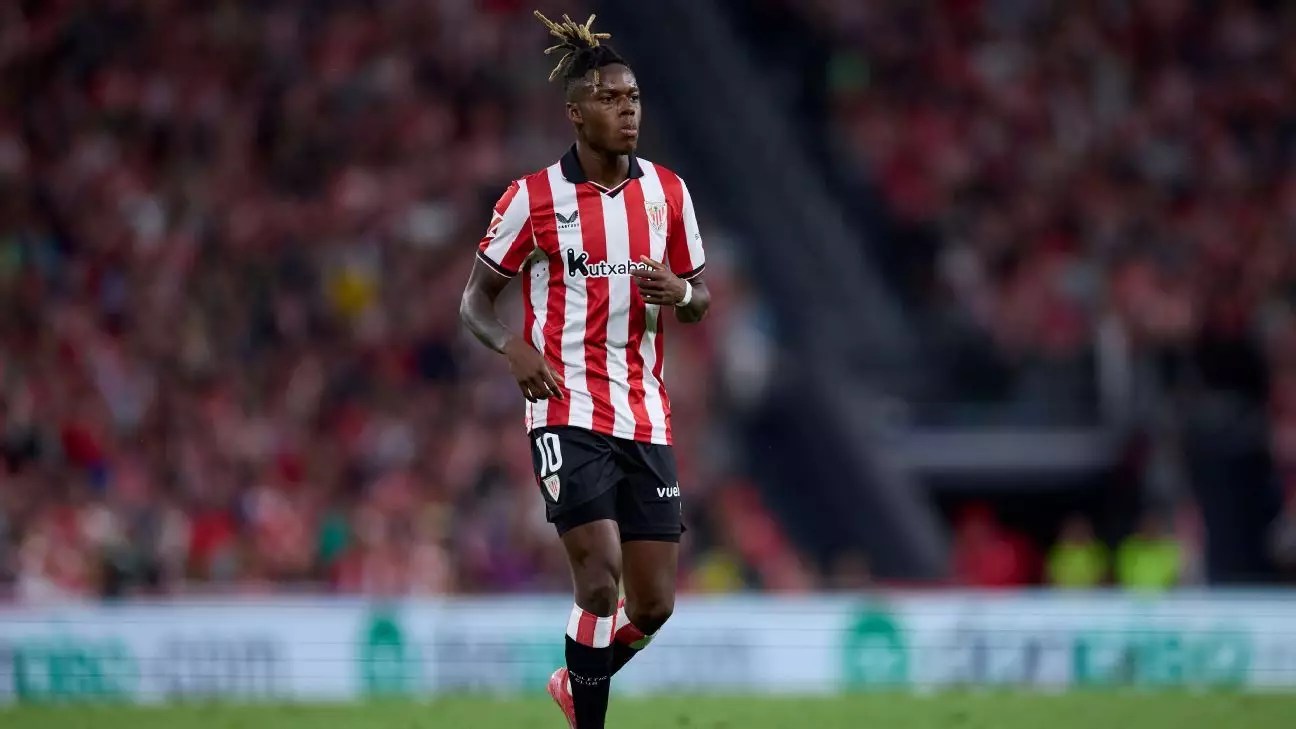The summer transfer window is an intense period where players, clubs, and agents navigate a complex web of interests, ambitions, and timing. The latest transfer gossip reveals that behind every headline lies a delicate balance of power and decision-making, which could redefine careers and club fortunes. From young talents eager to secure moves to top-tier clubs to established players weighing their next steps, the current market dynamics underscore an urgent need for fast yet strategic action.
The Pressure of Timing: Nico Williams’ Explicit Call to Barcelona
One of the more compelling stories revolves around Nico Williams, the 22-year-old Athletic Club winger who has made a bold move by urging Barcelona to finalize his transfer before he returns to training on July 9. This demand is not just about ambition; it reflects a savvy understanding of the psychological and logistical pressures within transfer negotiations. Williams has already accepted Barcelona’s financial terms and has turned down richer foreign offers, emphasizing his preference to join the Blaugrana. However, the real bottleneck lies in Barcelona meeting his release clause swiftly. Williams’ desire to avoid tension upon returning to Athletic Club highlights how timing can impact a player’s mindset and performance. If Barcelona delays, this could sour relationships and ultimately affect the player’s integration and focus. It’s a reminder that transfers are not solely about money or prestige but managing human realities.
Clubs on the Hunt: PSG Eyes Defense While Newcastle Faces Rebuff
On the pursuit of defensive solidity, Paris Saint-Germain has expressed interest in Union Berlin’s center-back Diogo Leite, alongside German and English clubs showing keen attention. Leite, with a relatively affordable release tag of €13 million and a contract extending to 2026, represents a strategic bargain for a club like PSG that regularly targets high-profile defensive reinforcements. This underlines a broader trend where even marquee clubs seek hidden gems, balancing experience and potential value.
Meanwhile, the battle for attacking talent continues elsewhere, with Newcastle United’s £50 million bid for Brighton’s João Pedro being firmly rejected. Despite long-standing interest from Newcastle and Chelsea, the Brazilian forward remains committed to joining a club where he can be guaranteed a starting role. This stance demonstrates the rare but powerful leverage some players wield in transfer dealings, forcing clubs to align their ambitions with the player’s aspirations or risk losing out. For Newcastle, this is a setback, showcasing how even financially robust clubs can face roadblocks when player conditions don’t match offers.
The Intricacies of Player Movements: From Durán to Musah
Internationally, Fenerbahce’s pursuit of Al Nassr striker Jhon Durán, aided by manager José Mourinho’s direct involvement, shines a light on the importance of personal relationships in recruitment. Durán’s openness to a European return and Mourinho’s pitch illustrate how man-management off the pitch influences decisions. Conversely, Jadon Sancho’s hesitancy to commit to Fenerbahce without Champions League qualification underscores how players increasingly factor in competitive contexts alongside financial and personal elements.
Meanwhile, Wolverhampton Wanderers and Nottingham Forest are vying for AC Milan and USMNT midfielder Yunus Musah, signaling a keen interest in versatile young talents. Milan’s earlier failed negotiations with Napoli for Musah show how protracted deals can stall, creating opportunities for new suitors. This may reflect a shift in how clubs balance risk and reward, choosing to allow interest to build rather than force premature sales.
Strategic Patience vs. Rapid Action: A Transfer Window Dichotomy
This snapshot of transfer activities throws into relief the contrasting approaches clubs and players adopt. Some, like Nico Williams and Barcelona, emphasize speed and decisiveness to preempt complications, while others embody patience—waiting out better offers or resolving existing negotiations. The interplay between urgency and caution defines the modern transfer market, where a delayed call or a premature offer can sway outcomes significantly.
These dynamics reveal that transfers are far from mere transactions; they are strategic negotiations shaped by individual ambitions, economic constraints, and competitive contexts. Acutely aware of how deadlines and perceptions shape their bargaining power, players and clubs maneuver to optimize their positions. Ultimately, this ongoing chess game will continue to evolve, demanding sharper acumen from all parties to emerge as winners in one of football’s most ruthless business arenas.


Leave a Reply